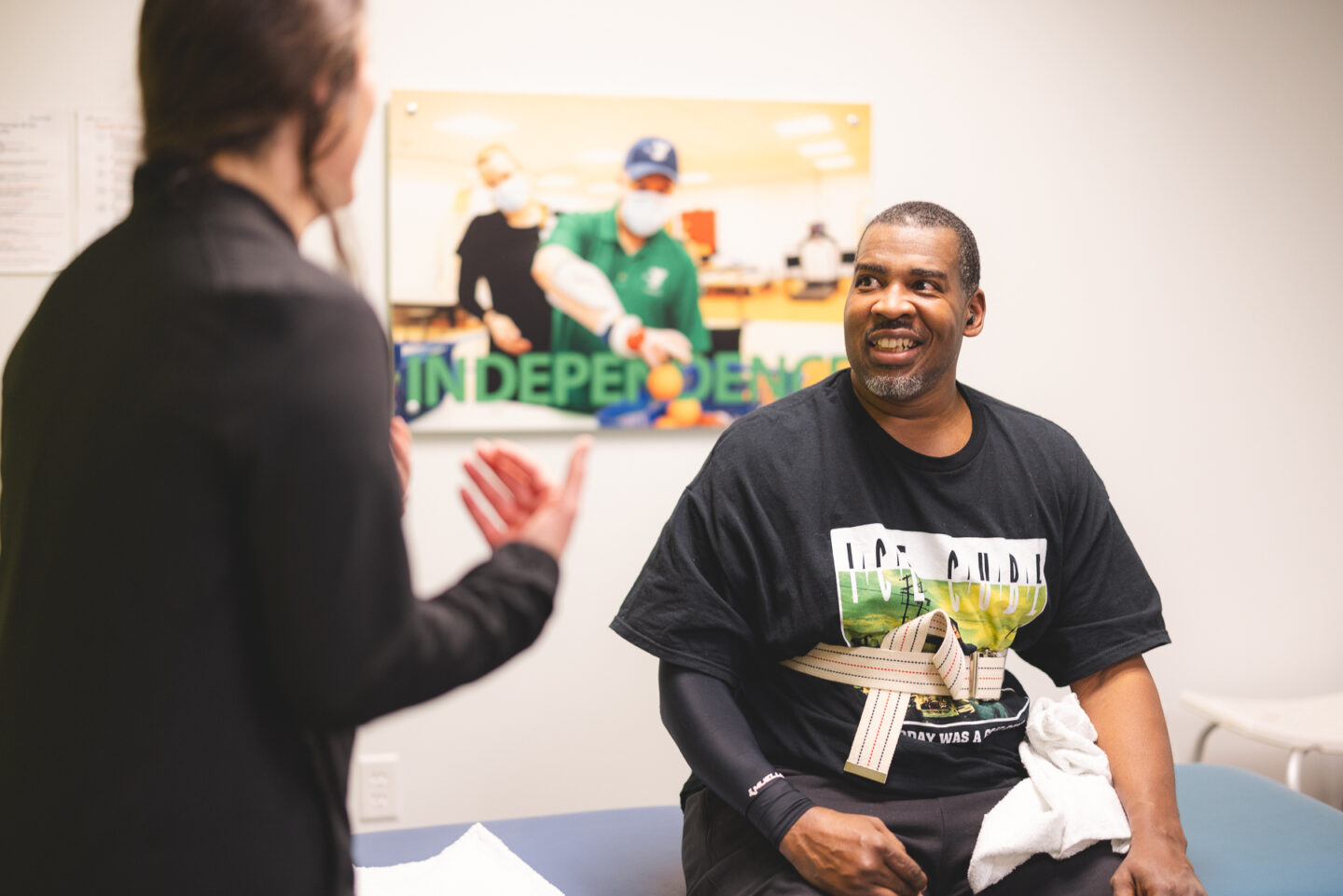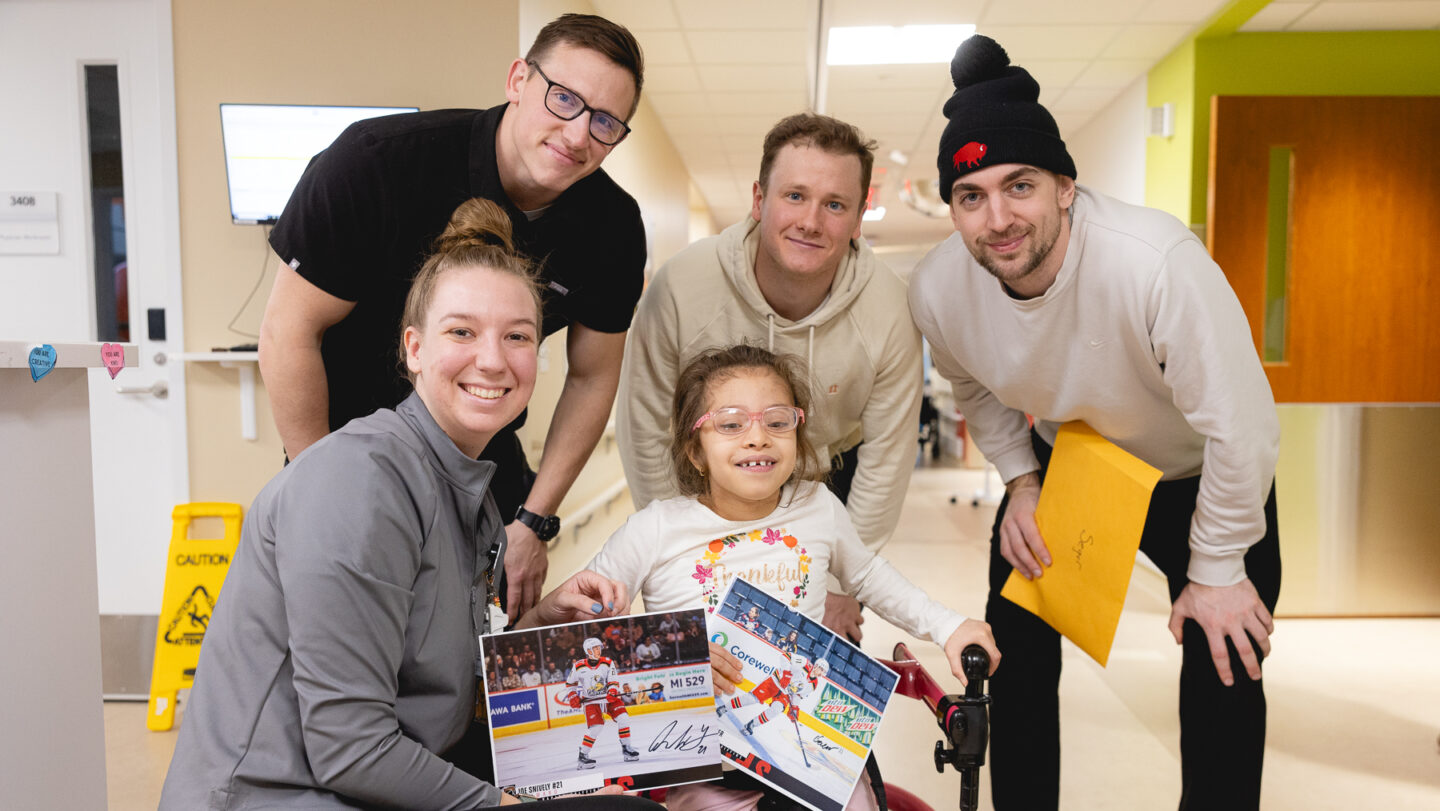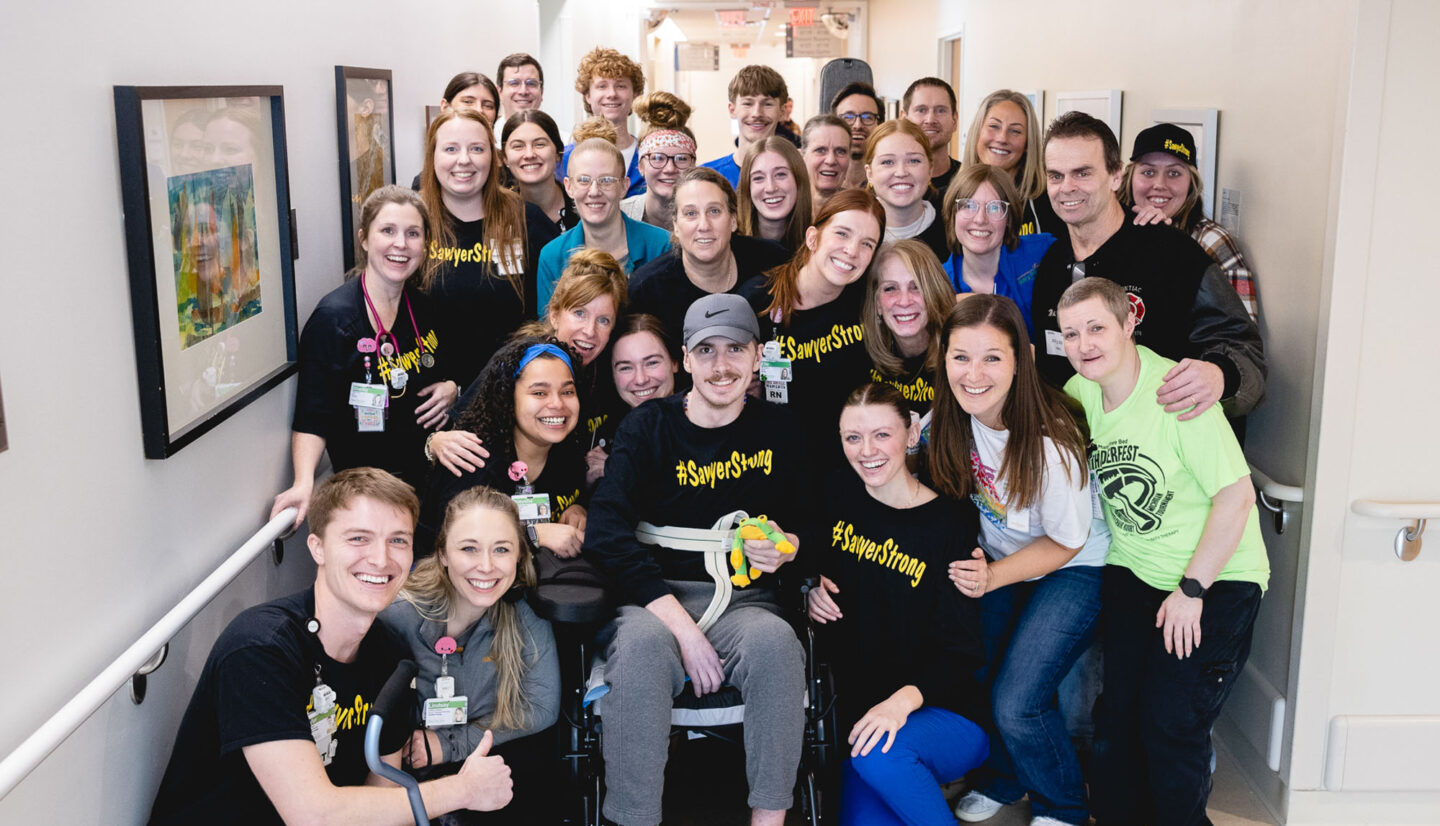Posted on June 30, 2011
Patient helps other amputees by starting support group
by Kate Snider
In July 2002, Dennis Vandereist’s car was struck by another vehicle, hit a fire hydrant and rolled. Dennis, who wasn’t wearing a seatbelt, was thrown from the vehicle, his left leg was pinned between the driver’s door and the ground. Dennis was taken to Holland Hospital, then flown to Spectrum Health where doctors tried to save his leg, to no avail.
“Before my amputation, I was active and able to support myself and my family,” Dennis said. “I drove a semi and I worked on houses. After my amputation, working got a lot harder. I’m pretty much retired. I can’t drive trucks and I can’t build houses anymore.”
Dennis has good days and bad days, he said: “I can’t cry about the stuff that has happened.”
Dennis said he cracks a lot of jokes about his prosthetic leg as a way to put people at ease with his prosthesis. He wears shorts 7 months of the year and doesn’t care what people think. He said, “I can’t hide it. I find the more open I am about my amputation, the easier it is.”
As part of his rehabilitation at Mary Free Bed, Dennis learned to use a walker and crutches to regain mobility. He speaks highly of his prosthetist Dave Firlik: “I have a lot of respect for Dave. Without him, I don’t think I would be as good as I am on my prosthetic leg.”
Dennis’ first prosthetic leg was a safety leg, to help him get used to a prosthesis. His second leg was a hydraulic knee and his third and fourth legs have been C-Legs®. These are microprocessor-controlled knee prosthetic devices that enable users to vary walking speeds and travel over changes in terrain.
Dennis said he can walk pretty well and has a lot more confidence than he did with his first couple of legs.
“The C-Leg is great,” Dennis said. “I don’t worry about falling anymore. I can do a lot of the stuff I used to do before my amputation. That doesn’t mean I’m Superman. With some things, I have to be more careful than before. This makes me wonder, what will prosthetic devices be like in 25 years?”
To help others dealing with limb loss, Dennis helped to start the West Michigan Amputee Coalition (WMAC). As a support group for amputees, WMAC’s goal is to use education, support and advocacy to empower people affected by limb loss.
When Dennis started this group, he says a lot of people were looking for answers about insurance, information about dealing with their limb loss, ways to change their attitude and support from other amputees.
“I was an amputee willing to help others by showing people how I got by with my limb loss,” Dennis said. “I thought (WMAC) would show others that they could deal with their own limb loss.”





